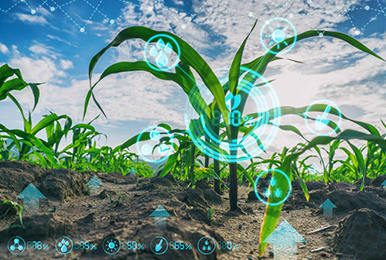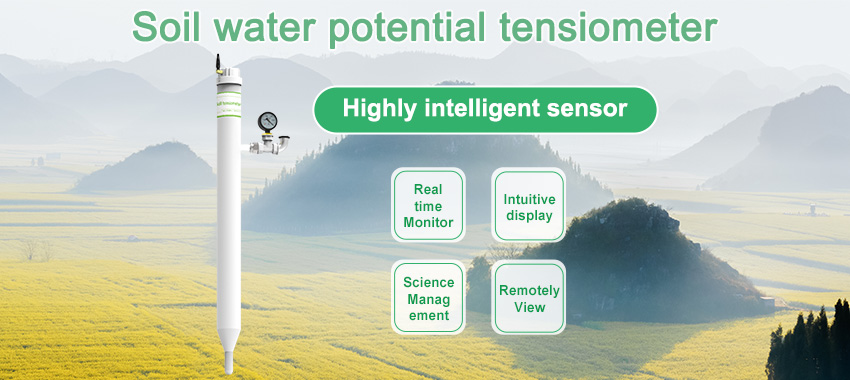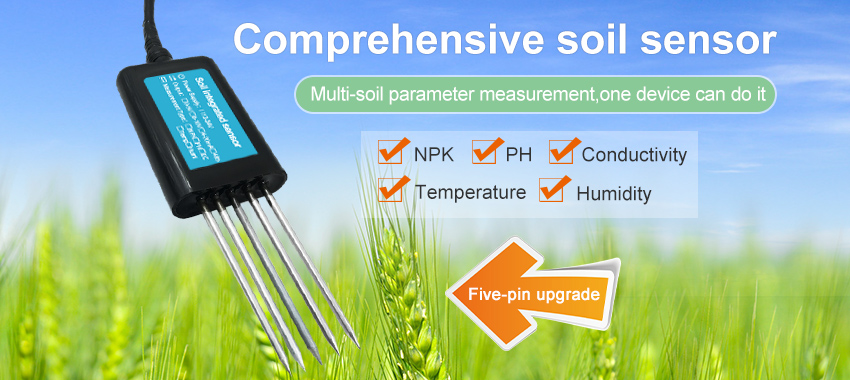Background:
Soil moisture sensors are also known as soil moisture meters. It is mainly used for measuring soil volumetric water content, monitoring soil moisture, agricultural irrigation, and forestry protection. The soil moisture sensor commonly used at present has FDR type and TDR type, namely frequency domain type, and time-domain type.

Types Of Soil Moisture Sensors
The most common types of soil moisture sensors include tensiometer, capacitance, dielectric method, gypsum blocks, volumetric, and neutron probes. These sensors either measure soil tension when placed in the soil or measure volumetric water content.
Soil moisture sensor for agriculture
The soil moisture sensor is a device that measures the current soil moisture. Sensors are integrated into irrigation systems in agriculture to help arrange water supply efficiently. Such meters help reduce or enhance irrigation to achieve optimal plant growth.
Capacitance
Using the dielectric properties of soil to measure soil moisture content is also an effective, fast, simple, and reliable method. For a capacitive soil moisture sensor with a certain geometric structure, its capacitance is proportional to the dielectric constant of the measured material between the two poles. Since the dielectric constant of water is much larger than that of ordinary materials, when the moisture in the soil increases, its dielectric constant increases correspondingly, and the capacitance value given by the humidity sensor during measurement also increases. The corresponding relationship between the capacitance of the sensor and the soil moisture can measure the soil moisture.
Capacitive soil moisture sensors are characterized by high accuracy, wide range, a wide variety of measurable materials, and a fast response speed, which can be applied to online monitoring to realize automated IJI pressure switches.

Tensiometer
Tensiometer soil moisture sensor is a kind of sensor that is widely and successfully used in some soil moisture measurements. This instrument has a porous porcelain head, which is connected to a vacuum gauge through a water-filled pipe. The device is inserted into a borehole in the soil. The porous porcelain head is closely attached to the soil, and the vacuum gauge is set on the ground. There is a great development in using a tensiometer to measure soil moisture content.
Tensiometer
Its advantages are: the structure and principle are relatively simple, it can be measured online in real-time, and the flow direction and penetration depth of water in the soil can be determined, but its shortcomings are also very prominent. Its measuring range is largely affected by soil quality. For clay, due to its good air permeability, even when the negative pressure of soil moisture is lower than 0-8Pa, the soil moisture content can be measured with a tensiometer. This method measures the suction of soil water, which needs to be converted into soil water content according to the soil-water characteristic curve. Because the relationship between soil water and energy is very complex, nonlinear, and susceptible to many soil physical and chemical properties.

5 in 1 integrated soil sensor
5 in 1 soil sensor is a soil all-in-one sensor independently developed by the company, which can simultaneously monitor soil temperature, soil moisture, soil pH, soil electrical conductivity (EC), soil nitrogen(N), phosphorus(P) and potassium(K).
The soil all-in-one sensor(5 in 1 soil sensor) adopts a new generation of international TDR measurement method, and the detection accuracy can reach within 3%; the special metal probe greatly extends the service life of the product.Comprehensive soil sensors (five-in-one soil sensors) are widely used in scientific experiments, water-saving irrigation, greenhouses, flowers and vegetables, grass and pasture soil rapid measurement, plant cultivation, grain storage, and measurement of moisture content and temperature of various particulate matter.
V Q ratio is the ratio between air getting into the alveoli and the blood flow to the lungs finasteride 5mg no prescription cheap